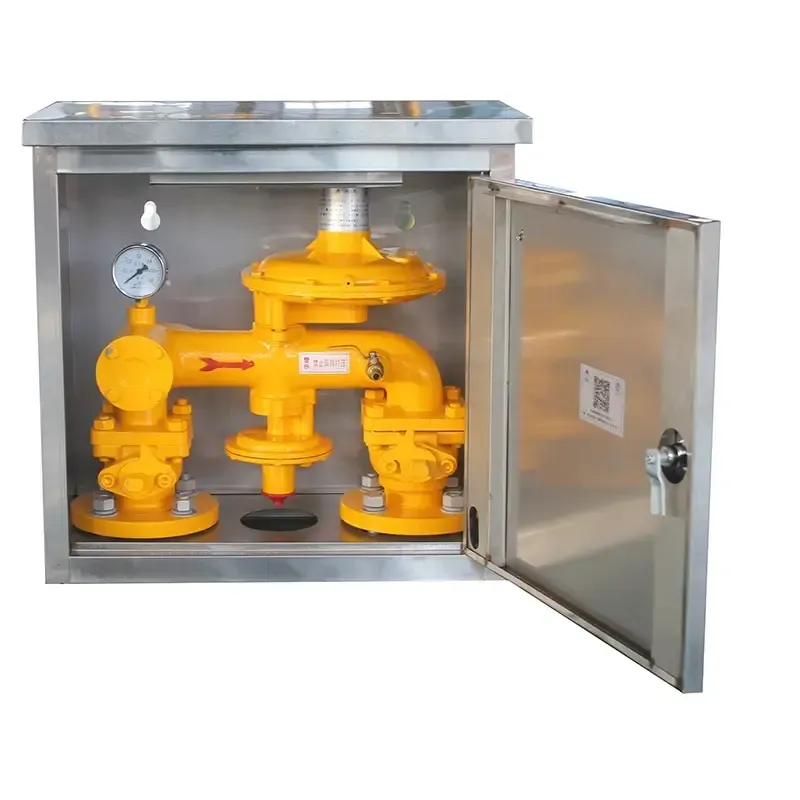
Oct . 08, 2024 17:43
Back to list
natural gas regulator
Understanding Natural Gas Regulators Function and Importance
Natural gas has become an essential energy source globally, providing heating, cooking, and electricity generation. However, the safe and efficient use of natural gas requires precise regulation. This is where natural gas regulators come into play. These devices are critical for ensuring that the gas delivered to homes and businesses is at a safe and usable pressure.
What is a Natural Gas Regulator?
A natural gas regulator is a mechanical device that controls the pressure of natural gas delivered from the main supply line to an end-user's equipment. Gas regulators function by reducing high-pressure gas from the supply line to a lower, more controlled pressure suitable for use in appliances. They serve multiple functions, such as ensuring safety, optimizing performance, and preventing damage to gas appliances.
How Does a Natural Gas Regulator Work?
The operation of a natural gas regulator is relatively straightforward
. There are generally two types of regulators service regulators and meter regulators.1. Service Regulators These are typically installed at residential or commercial properties. They reduce the high-pressure gas in the supply line to a pressure that can be safely used by household appliances. When the gas enters the regulator, it acts on a diaphragm that senses changes in pressure. If the downstream pressure is too low, the regulator allows more gas to flow through. Conversely, if the pressure is too high, it restricts the gas flow, maintaining a constant output.
2. Meter Regulators These are used at gas meters to ensure that the amount of gas flowing into the property is accurately measured while maintaining proper pressure. They provide a dual function of regulation and measurement, making them vital for billing purposes and gas usage monitoring.
Importance of Natural Gas Regulators
The importance of natural gas regulators cannot be overstated. Here are several key reasons why they are essential in the gas supply system
natural gas regulator

1. Safety One of the primary purposes of gas regulators is to ensure safety. High-pressure gas can pose significant risks, including leaks, explosions, and fires. Regulators mitigate these risks by reducing and controlling the pressure before the gas reaches the appliances.
2. Efficiency Proper regulation of gas flow can lead to more efficient use of energy. When the gas is delivered at the optimal pressure, appliances can operate more efficiently, resulting in lower energy costs and reducing waste.
3. Protection of Appliances Appliances designed to use natural gas require specific pressure levels to function correctly. Without proper regulation, appliances may be exposed to pressures that can cause damage, leading to costly repairs or replacements.
4. Environmental Impact Efficient use of natural gas, facilitated by regulators, contributes to lower carbon emissions. By ensuring that gas is consumed efficiently, regulators aid in environmental conservation and fuel sustainability.
Maintenance and Safety Considerations
While natural gas regulators are designed for durability and reliability, regular maintenance is essential to ensure their proper function. Homeowners and businesses should periodically inspect regulators for any signs of wear, corrosion, or malfunction. Additionally, it is crucial to ensure that the installation and maintenance of these devices comply with local safety codes and regulations.
If any issues are detected, such as unusual sounds, gas odors, or inconsistent appliance performance, it is vital to contact a qualified technician for inspection and possible replacement. Safety should always be a priority when dealing with natural gas systems.
Conclusion
Natural gas regulators play a pivotal role in our daily lives, enhancing safety and efficiency in the use of natural gas. By understanding their function and importance, users can ensure that their gas supply is safe and effective. As we continue to rely on natural gas for our energy needs, proper regulation will be essential for both safety and sustainability. Regular maintenance and vigilance can help prevent issues, ensuring that natural gas remains a reliable energy source for homes and businesses alike.
Latest news
-
Safety Valve Spring-Loaded Design Overpressure ProtectionNewsJul.25,2025
-
Precision Voltage Regulator AC5 Accuracy Grade PerformanceNewsJul.25,2025
-
Natural Gas Pressure Regulating Skid Industrial Pipeline ApplicationsNewsJul.25,2025
-
Natural Gas Filter Stainless Steel Mesh Element DesignNewsJul.25,2025
-
Gas Pressure Regulator Valve Direct-Acting Spring-Loaded DesignNewsJul.25,2025
-
Decompression Equipment Multi-Stage Heat Exchange System DesignNewsJul.25,2025

